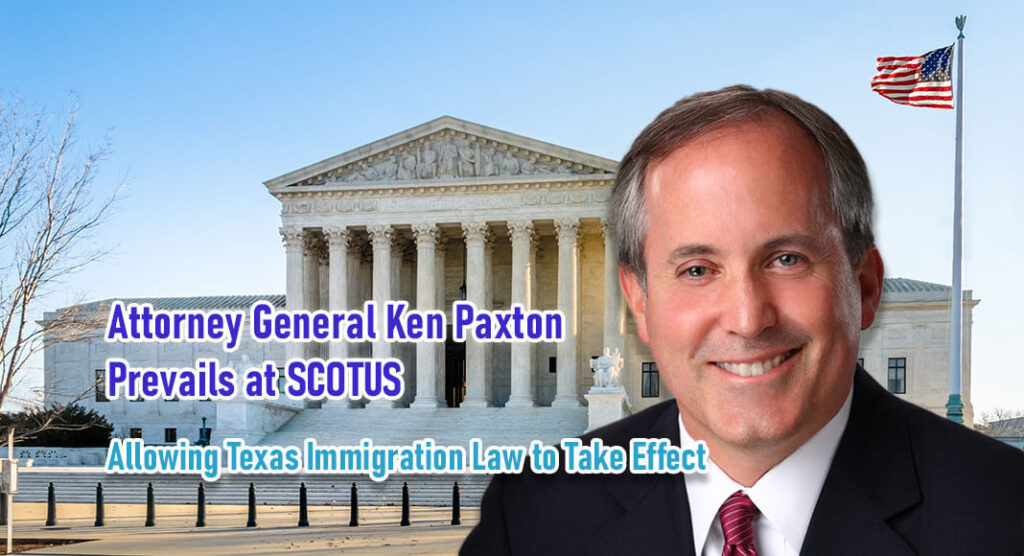
Texas Border Business
In a decisive legal battle that underscored the contentious debate surrounding immigration policy in the United States, Texas Attorney General Ken Paxton achieved a significant victory at the Supreme Court of the United States (SCOTUS). The high court denied emergency motions from the Biden Administration and various entities, including civil rights organizations, aiming to block the enforcement of Texas’s new immigration statute, Senate Bill 4 (SB 4). This development effectively allows the state of Texas to commence the immediate application of the law while awaiting the U.S. Court of Appeals for the Fifth Circuit’s decision on whether to grant a stay pending appeal.
SB 4 was enacted in response to what state officials have characterized as an “ongoing disaster” at the Texas-Mexico border. The law criminalizes the act of illegally crossing the border into Texas, reinforcing the federal crime with state-level jurisdiction. This move empowers Texas law enforcement agencies to detain individuals who enter the state illegally and authorizes judges to mandate their return to their countries of origin. Proponents of SB 4 argue that it is designed to bolster Texas’s sovereignty and security without contravening existing federal immigration laws.
Attorney General Paxton’s office has been at the forefront of defending SB 4 and advocating for its implementation. “For now, Texas has defeated the Biden Administration’s and ACLU’s emergency motions at the Supreme Court,” Paxton stated. “Our immigration law, SB 4, is now in effect. As always, it’s my honor to defend Texas and its sovereignty, and to lead us to victory in court.”
The Supreme Court’s decision to vacate the administrative stay previously in place marks a pivotal moment in the ongoing legal and political struggles over immigration enforcement in the United States. As Texas begins to enforce SB 4, the law’s implications for immigrants, law enforcement practices, and the broader debate on state versus federal jurisdiction over immigration issues are expected to unfold in the coming months.
Critics of SB 4 argue that it may lead to racial profiling, erode trust between immigrant communities and law enforcement, and overburden state and local agencies. Meanwhile, supporters view the law as a necessary measure to control illegal immigration and protect the state’s resources and residents.
The controversy surrounding SB 4 and similar immigration policies reflects the deep divisions within the United States regarding the approach to managing immigration and border security. As the legal challenges to SB 4 progress through the courts, the nation will closely watch how these debates shape the future of immigration policy at both the state and federal levels.
As this legal battle unfolds, the implications of SB 4’s enforcement or blockage are far-reaching, touching on issues of state sovereignty, federal immigration policy, and the lived experiences of immigrant communities in Texas.
To read the order, click here.















